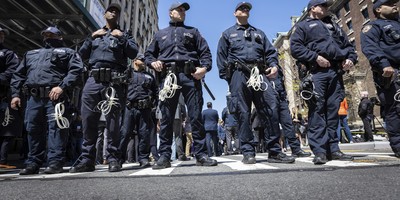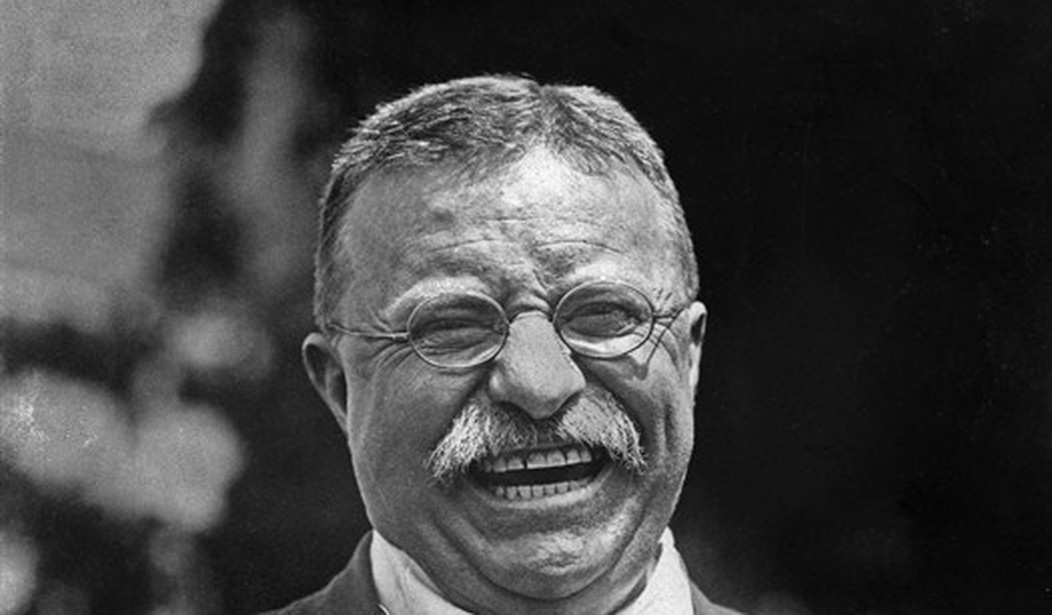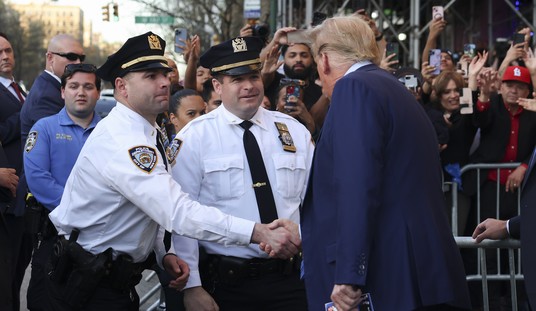When a bullet tore into Teddy Roosevelt’s chest during a campaign stop in Milwaukee in 1912, a crowd ganged up on the would-be assassin after TR’s stenographer, a former football player, tackled him to the ground.
“Lynch him! Kill him!” the crowd shouted.
A wounded Roosevelt raised his hand to restore order.
Roosevelt was well-acquainted with the passions that ripen the political environment for assassination. He became a state assemblyman in 1882 after President Garfield was assassinated at a railroad station where, as it turns out, Robert Todd Lincoln – Abraham’s son – was present. And, in 1901, he was sworn into his first of two terms as president after McKinley was assassinated.
“Don’t strike the poor creature,” Roosevelt said. “Bring him to me. Bring him to me. I want to see him.”
John Flammang Schrank, an unemployed New York saloon-keeper, had followed the campaign with his .38 revolver for nearly 2,000 miles through six states, waiting to get a clear shot. That shot came just after 8 p.m., Oct. 14, as Roosevelt stood in an open-air car waving with his hat to well-wishers in front of Gilpatrick Hotel. Blending into the front row, the short, burly 36-year-old wiggled his way to within 6 feet of Roosevelt, who was about to bow to the crowd. Schrank took point-blank aim at Roosevelt’s head before he was wrestled to the ground.
The former president now stared face-to-face with his attempted killer.
“Why did you do it?” he asked.
No answer.
“Oh what’s the use? Turn him over to the police,” he ordered.
Roosevelt must’ve wanted to know how much this disgruntled Bavarian immigrant had been influenced by unusually vicious campaign rhetoric that year. Biased newspapers were especially harsh, dutifully painting Roosevelt as an “egoist” who was only running to feed his vanity. Eugene Debs of Indiana, Socialist Party nominee, criticized him as “a charlatan, mountebank (trickster) and fraud,” and ridiculed his campaign promises as “the mouthings of a low and utterly unprincipled self-seeker and demagogue."
Recommended
Roosevelt’s physician, fearful for his life, directed the driver to rush to the hospital. Roosevelt interrupted.
“Get me to that speech!” he said firmly. “This may be my last talk … and while I am good, I am going to drive to the hall to deliver my speech.”
When Roosevelt was set at the podium inside the Milwaukee Auditorium across the street, the crowd was oblivious to what had just happened.
“Friends, I shall ask you to be as quiet as possible,” he began. “I don’t know whether you fully understand that I have just been shot.”
The audience hushed. Roosevelt pulled the half-folded, blood-stained speech from his breast pocket – all 50 pages, which had a bullet hole through them. Doctors said if he hadn’t put that speech and his steel-rimmed glasses in his pocket, the bullet – on a trajectory straight to his heart – would have killed him.
Before reading the speech, Roosevelt spoke off the cuff for a few minutes. Uncertain whether this would be his “last talk,” he made four major points worth passing on to Trump’s enemies; people who, today, seem committed to nurturing a most lethal strain of toxic hyperbole.
Point 1: Inflamed political rhetoric can spark weak minds to inflamed acts of violence.
“Now, friends, of course, I do not know, as I say, anything about him (the shooter); but it is a very natural thing that weak and vicious minds should be inflamed to acts of violence by the kind of awful mendacity and abuse that have been heaped upon me for the last three months by the papers ….”
Point 2: People who engage in prolonged attacks of slander – even against political enemies – should be disowned and repudiated.
“Friends, I will disown and repudiate any man of my party who attacks with such foul slander and abuse any opponent of any other party; and now I wish to say seriously to all the daily newspapers, to the Republicans, the Democrat, and Socialist parties, that they cannot, month-in month-out and year-in and year-out, make the kind of untruthful, of bitter assault that they have made and not expect that brutal, violent natures, or brutal and violent characters, especially when the brutality is accompanied by a not very strong mind; they cannot expect that such natures will be unaffected by it.”
Point 3: Pitting the “haves” against the “have-nots” stirs up violence.
“Friends, every good citizen ought to do everything in his or her power to prevent the coming of the day when we shall see in this country two recognized creeds fighting one another; when we shall see the creed of the "Have-nots" arraigned against the creed of the "Haves." When that day comes, then such incidents as this tonight will be commonplace in our history.”
Point 4: Workers, leaders of aggrieved groups should denounce disorder and not incite riots.
“I want every labor man, every labor leader, every organized union man, to take the lead in denouncing disorder and in denouncing the inciting of riot; that in this country we shall proceed under the protection of our laws and with all respect to the laws, I want the labor men to feel in their turn that exactly as justice must be done them, so they must do justice.”
Roosevelt spoke for 84 minutes with a bullet lodged 3 inches into his chest, which remained there for the rest of his life. Hopefully, his message will survive the centuries.
Today, deeply shallow celebrities, biased-by-design media, and opportunistic politicians – all lone wolves of the “resistance movement” – have stoked the fires of Trump hatred for six months, saturating public airwaves with some of the most inflammatory language ever heard in American public discourse.
Power has transferred. Trump is America’s duly elected president. He’s Trump, but he’s also the embodiment of a venerated American institution – the presidency.
Oppose his policies, but do so vigorously on the merits; not on repetitive, scorched-earth rhetoric propagated with such venom that, as Roosevelt said, it naturally risks inciting the weak to violence.

























Join the conversation as a VIP Member